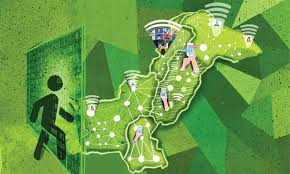
A Step Toward Gender Equality
In a historic move, the Pakistani Parliament has approved a landmark law aimed at improving women’s rights and addressing long-standing gender inequalities in the country. The new legislation seeks to empower women by providing legal protections against gender-based violence, discrimination, and exploitation. The law is part of a broader national effort to advance gender equality and ensure that women’s rights are recognized and upheld in various aspects of society, including the workplace, family life, and public life. The bill has been hailed as a major achievement in Pakistan’s ongoing struggle to improve the status of women and tackle deeply rooted patriarchal norms.
Provisions for Protection Against Violence
One of the central features of the new law is its provisions to protect women from various forms of violence, including domestic abuse, harassment, and honor killings. The law mandates the establishment of special courts to expedite cases involving violence against women, ensuring quicker access to justice for victims. It also introduces stricter punishments for perpetrators of domestic violence and harassment, and requires the creation of shelters and support systems for survivors of abuse. This comprehensive approach aims to address the systemic violence that many women in Pakistan face, which has long been a significant barrier to achieving gender equality.
Legal and Economic Empowerment of Women
Beyond protection, the law also focuses on the legal and economic empowerment of women. It includes measures to guarantee equal inheritance rights, ensuring that women have access to their rightful share of property under inheritance laws. Additionally, the law aims to improve women’s participation in the workforce by ensuring equal pay for equal work and eliminating discrimination in hiring practices. The legislation also advocates for greater representation of women in decision-making bodies, encouraging their involvement in both political and economic spheres. These provisions are designed to create a more inclusive environment where women can contribute fully to society and the economy.
Addressing Cultural and Social Barriers
While the law represents a significant advancement in women’s rights, its implementation faces challenges rooted in cultural and social norms. In many parts of Pakistan, deeply ingrained patriarchal attitudes continue to influence women’s access to education, employment, and political power. The law will require not only legal enforcement but also widespread societal change to ensure that women can fully benefit from the protections and opportunities it offers. Civil society organizations, women’s rights activists, and local communities will play a crucial role in raising awareness and advocating for the enforcement of these rights at the grassroots level, ensuring that the law leads to tangible improvements in the lives of women across the country.
A Long-Term Commitment to Gender Equality
The approval of this landmark law represents a significant milestone in Pakistan’s journey toward gender equality, but it is just one step in a much longer process of social and legal reform. For lasting change, the law must be effectively enforced, and cultural attitudes toward women must continue to evolve. The legislation is a clear signal of the government’s commitment to improving the status of women in Pakistan, but it will require ongoing efforts from all sectors of society—government, civil society, and the private sector—to create a more equitable and inclusive environment for women. As the country moves forward, this law serves as a powerful tool in the fight for women’s rights and a more just society.
Find out how to turn your PUBG skills into earnings with our tutorial

